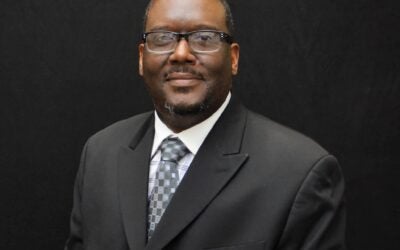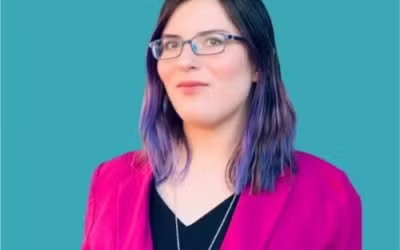In a rapidly changing world, young people are navigating unprecedented challenges—and their mental health is at stake. In this episode of Into the Fold, host Ike Evans and guest host Vicky Coffee, director of foundation initiatives, sat down with Shawn Kent, a licensed therapist and leader at the Amala Foundation, to explore what it means to support youth mental health in uncertain times. They take a deep dive into the mental health challenges today’s youth face, the pressures on families and educators, and the community-driven solutions that offer hope.
Youth Mental Health in a World of Constant Change
“Young people today are dealing with massive social and digital transitions,” says Shawn. “These changes are not only affecting how they learn and socialize, but also their sense of identity and hope for the future.”
He notes that global issues, technological overload, and social conflict can contribute to a growing sense of hopelessness among teens. In addition, Shawn draws attention to the concept of allostatic load—the cumulative wear and tear on the nervous system caused by chronic stress and constant change.
“When I think of all the things kids and families are struggling with right now… it really concerns me,” Shawn says.
Family Dynamics and Emotional Bandwidth
Vicky and Shawn, both parents, discuss how family dynamics play a key role in children’s emotional well-being. For Shawn, being intentional about daily routines and fostering a supportive home environment for his young children are essential.
“We try to eat dinner together as a family and do daily check-ins,” Shawn says. “Research shows that even simple rituals like these can have long-term positive effects.”
He also places value on ‘third spaces.’
“All kids need a third space,” he says. “They’ve got school, they’ve got home, and then they need at least some sort of third space where they get to do cool things, meet people. and enculturate. So, mine are in the Girl Scouts. That’s currently our third space. It could be church. It could be any community like that. But they need a third space to support them as they develop and grow.
As the parent of an adult child, Vicky brings another perspective to bear.
“My son is an adult now, but I remember with him growing up that I tried to create a space for him where he could make mistakes and recognize that you learn from them,” says Vicky. “If things work out, great. And if they don’t work out, let’s talk about it. What didn’t work for you, and how did that impact you?”
“I would say it’s kind of a friendship in that I have to step back as a parent and recognize that he may do things that I may not agree with, but I have to support his choices,” said Vicky.
Unfortunately, many families face financial stress and overwork, which drains emotional bandwidth.
“It takes a lot of bandwidth to raise a kid,” says Shawn. “When you’re stressed and struggling, you just don’t have it—and the kids miss out.”
Social Media’s Influence
Shawn and Vicky both acknowledge the influence—and potential danger—of social media.
“We’ve essentially handed kids an addictive substance,” Shawn notes.
While recognizing that tablets and phones can be educational and convenient, he warns that their overuse can lead to disconnection and emotional distress, especially among teens. Vicky agrees, adding that the potential negative impact can be felt across all age groups.
“Whether you’re six or twenty-six, the emotional toll of being constantly plugged in is real,” says Vicky.
Schools and Systems: Reimagining Support
While grateful for public education, Shawn feels that the traditional school system is not designed to support students’ mental health.
“The priority is often on test scores and grades, not well-being,” says Shawn.
He expresses hope, however, for a future where schools embrace holistic support, including access to in-school mental health professionals and crisis teams.
“Educators work really hard. They’re overworked, they’re underpaid, they have a Lot of kids that they have to deal with,” said Shawn. “And so they’re tired, but they’re also some of the most dedicated people in our community. They’re some of the most dedicated people I’ve met. I hear a lot of desire for more space, more time and more support, more well being and of course, better finances.”
The Power of Connection and Purpose
When asked about strengths and supports that help youth adapt, Shawn highlights the importance of kids experiencing a sense of place, feeling seen and loved, and having trusted adults and peers to turn to.
“Connection and belonging are everything.”
Indeed, through programs like peer-to-peer support circles, Shawn fosters these connections at the Amala Foundation. Amala’s programs also include creative and physical outlets, such as journaling, drumming, mindfulness, and ropes courses.
“When we do something new and creative together, it opens us up,” Shawn says. “It allows young people to express things they may not be able to say otherwise.”
“Distributing” Mental Health
Shawn also promotes the concept of distributing mental health resources by broadening the community’s understanding of it.
“We’re working really hard on developing a community support specialist model so that community members have a better understanding of mental health and are able to facilitate some of the circles that we do at AMLA in their own community spaces so that we can distribute this as far as we can,” says Shawn. “The more we normalize mental health, the more we talk about it in everyday life, the better for everyone.”
The goal is simple, he says. “We need to build a society where people can be healthy—where we slow down, give more space, and focus on humanity.”
Related Content
Faith as a Mental Health Partner
Today’s episode explores what becomes possible when that trust is paired with intentional partnership across faith, community, and mental health systems. Our guest is the Reverend Dr. Daryl Horton of Mount Zion Baptist Church in East Austin.
Mutual Aid, Mutual Respect
In this episode of Into the Fold, we speak with Dawn Capra, Director of Housing Advocacy at the Texas Housing Foundation. She describes how well-coordinated and respectful cooperation between community organizations supported both the logistical needs and emotional well-being of displaced residents.
Let Community Drive the Work: A Conversation with Larissa Minner
In this episode of the podcast, Larissa Minner, a researcher at the Texas Center for Disability Studies at the University of Texas School of Social Work and director of the Weaving Inclusion Together in research Hub (WITH), joins us for an exploration of how small-scale changes to everyday practice can catalyze deeper change not only to lives, but to systems.
Rebuilding Trust in Our Systems of Care
Trust is the foundation of every system that is supposed to support us—schools, hospitals, mental health services, and even the justice system. But for many communities, that trust has been broken again and again.
Rhythms of Resilience: An Early Look at the Robert Lee Sutherland Seminar
This year’s RLS seminar will feature a keynote experience unlike any other—a powerful blend of rhythm, connection, and healing led by Grammy Award–winning percussionist Nina Rodriguez.
Community-Based Solutions: Grassroots Mental Health Innovations That Work
When it comes to supporting rural communities, especially around mental health, success often starts not with answers, but with questions—and a deep commitment to listening.






